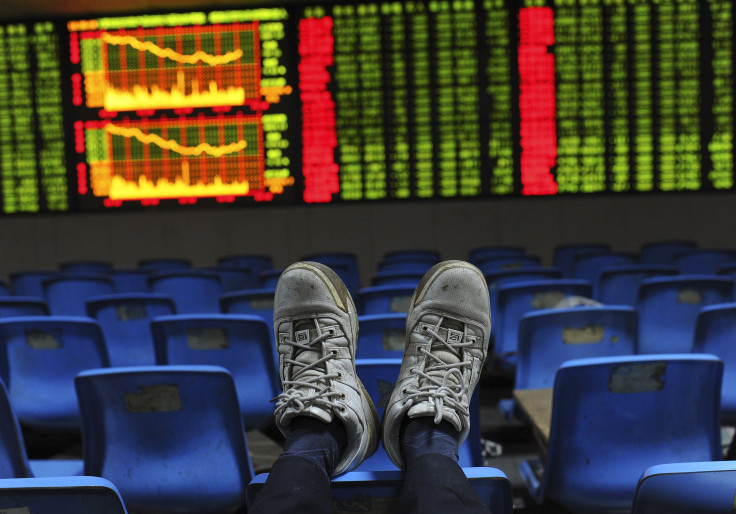Stock Market Downturn Good For Millennials? Risk-Averse Young People May Invest Now, Experts Say

Justin Brosseau isn't panicking about the recent stock market roller coaster. He sees it as an investment opportunity -- for himself and for his generation.
"When I saw that the market was basically crashing, I knew it was my time," said the 23-year-old consultant from Chicago. "Downturns and corrections have always been good to the markets. . . I would hope that this will change millennials' minds and they'd realize that there is long-term security in markets."
Millennials, or 18-to-34-year-olds, whose financially formative years coincided with the Great Recession, have traditionally shied away from playing the stock market. Ridden with student debt and in many cases still living with their parents, young adults have been afraid to risk their money in a system they don't understand, let alone trust.
But now could be their chance. Sparked by concerns about the future of China's economy, the Dow Jones Industrial Average suffered its worst single-day decline in years. By Wednesday, it was up about 200 points but still at its lowest level since October 2014. Financial experts said that while such conditions may worry market-watchers, they're perfect circumstances for millennials considering investing because stock prices are down and their age makes it a good time to start preparing for retirement. But will they?
"There are a lot of people who are going to say, 'See, this is exactly why I don't put all of my hard-earned money into the market,'" Brosseau said.
Only about a quarter of American millennials say they've invested in the stock market, roughly half of the number of investors in the 58-64 age group. A Goldman Sachs study from June found that just 18 percent of people said they trusted the market as "the best way to save for the future." The other respondents said they didn't know enough about the market, thought it was unfair, or saw it as too volatile.
This is likely the result of growing up during the dot-com bubble burst in 2000 and the Great Recession (2007 to 2009), said Greg McBride, the chief financial analyst for Bankrate.com, a personal finance website based in North Palm Beach, Florida.
"Even if they weren't directly impacted, they saw the impact it had on family members and friends," he said. "They have almost a predisposition toward avoiding the stock market."
Although millennials' reticence to invest may mean they're protected when the market dives, like it did this week, it could also give them the wrong impression of the overall system. McBride said millennials' frame of reference is skewed -- they either don't remember or disregard things like the bull market of the '80s or the fact that the market has tripled since 2009. They're looking forward to retirement, he said, but they're "overly conservative" and prefer to save for it in cash.
Even though starting an investment portfolio young could lead to greater benefits, millennials are terrified of losing money, said Robert Farrington, the San Diego-based founder of finance site The College Investor. That's why the recent up-and-down period in the market could be a good time for them to test it out. "Downturns like this are just an opportunity to buy equities at a lower price," said Farrington, 30.
Popular stocks are essentially on sale. Apple shares were $122.77 a month ago but Wednesday cost about $107.60. Facebook was $94.17 a share last month but Wednesday reached $85.20. Disney fell from $118.25 in July to $97.74 on Wednesday.
Farrington cautioned that the downturn doesn't necessarily mean every millennial should run out and buy dozens of shares. They need to create a long-term plan and keep in mind that market fluctuation is normal, he said.
Bobby Hoyt, a 27-year-old from Houston who runs MillennialMoneyMan.com, said he's been watching stocks like Chevron and Exxon to see how low they'll go before buying. His initial reaction to the stock market meltdown was alarm, but he quickly calmed down and realized it gave him a shot to expand.
Hoyt recommends millennials considering getting into the stock market meet with older, professional peers and then "get their feet wet." But he acknowledged that, downturn or not, young people probably wouldn't embrace the market all at once.
"Things probably need to settle down a little bit in the global economy before millennials really feel comfortable," Hoyt said. "I hope they're looking for a bargain right now."
© Copyright IBTimes 2024. All rights reserved.





















